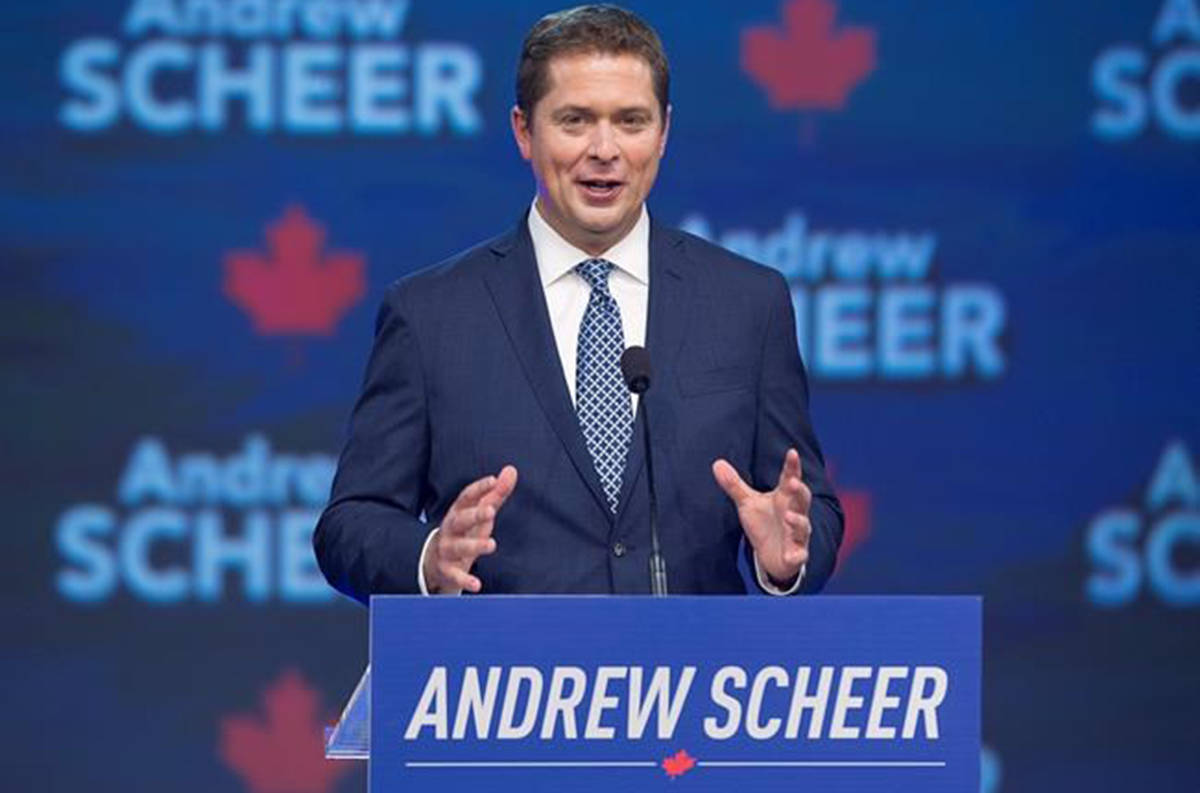Conservative Leader Andrew Scheer reiterated his pledge not to reopen the abortion debate, hours before party members voted to uphold the existing policy at the Tories’ national convention in Halifax on Saturday.
One of 74 resolutions debated at the convention on Friday proposed removing any reference to regulating abortion from the party’s official policy, but the resolution was narrowly defeated on Saturday.
The party policy currently says a Conservative government would not support any legislation to regulate abortion, and Saturday’s vote of 53 per cent to 47 per cent means that policy will stand.
In an interview with The Canadian Press earlier in the day, Scheer said he would not bring in any legislation to reopen divisive issues such as abortion, even if a majority of members had voted in favour of the resolution.
“I’ve made it very clear that, as prime minister, I will not reopen that debate. I will not introduce legislation to reopen divisive issues or to reopen issues that have already been settled by previous governments,” he said.
During the policy plenary on the closing day of the convention on Saturday, several contentious resolutions were voted on by the general membership, including two other resolutions that deal with abortion — both of which passed.
One says abortion should be explicitly excluded from maternal child and health financial aid that Canada provides to developing countries. That resolution passed easily, so an electronic vote count was not needed.
Another resolution supporting legislation to ensure any child born alive should be given every opportunity to sustain life also passed with a margin of 63 per cent to 37 per cent. That resolution was supported by the anti-abortion lobby group the Campaign Life Coalition.
Before the votes were even held, however, Scheer said that while he welcomes open debates and discussions among the members, he will remain “unequivocal” in his stance that he will not entertain divisive social issues, including abortion.
But abortion wasn’t the only controversial social issue raised in the policy resolutions, each of which were put forward by electoral riding associations from across the country.
Another resolution, which opposed the extension of “euthanasia and assisted suicide” to minors, people with mental illness or “people who are not competent,” passed by a margin of 62 per cent to 38 per cent.
Another, which described pornography as a public health risk in need of government regulation to reduce exposure and addiction, was defeated.
The debates elicited many heated arguments about the Conservative party’s ideology and ability to accommodate the views and policy proposals of more socially conservative members within the party.
On Friday, some delegates even passed out handouts dictating how “Conservatives for real Conservative values” should vote on the more controversial social issue resolutions.
For those who aren’t happy with the outcome of some of Saturday’s votes and feel disenfranchised, Scheer said he would like to try to work on areas where they can find consensus.
“A leader’s job is to find common ground,” he said.
“I’m not going to bring in legislation, bring in proposals that would divide our own caucus, divide our own party and divide Canadians.”
Teresa Wright, The Canadian Press



